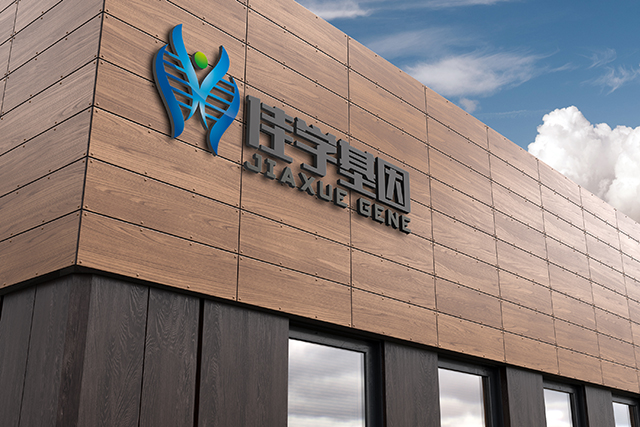【佳学基因检测】印迹基因 Grb10 的单等位基因缺失促进辐照 Nf1+/- 小鼠的肿瘤形成
基因检测全套费用需要多少钱比较分析
数据分析肿瘤基因检测位点的全面性与准确性《肿瘤个性治疗的方法与措施》《PLoS Genet》在 2015 May 22;11(5):e1005235发表了一篇题目为《印迹基因 Grb10 的单等位基因缺失促进辐照 Nf1+/- 小鼠的肿瘤形成》肿瘤靶向药物治疗基因检测临床研究文章。该研究由Rana Mroue, Brian Huang, Steve Braunstein, Ari J Firestone, Jean L Nakamura 等完成。促进了肿瘤的精准治疗与个性化用药的发展,进一步强调了基因信息检测与分析的重要性。
肿瘤靶向药物及精准治疗临床研究内容关键词:
0
肿瘤靶向治疗基因检测临床应用结果
印记基因仅从一个亲本等位基因表达,涉及表达的等位基因的杂合缺失足以产生蛋白质表达的完全丧失。基因改变在肿瘤发生中很常见,但印迹基因在这一过程中的作用尚不清楚。在早期的工作中,我们对神经纤维瘤病 I 肿瘤抑制基因 (NF1) 杂合子小鼠进行了诱变,以模拟在受辐射的 NF1 患者中出现的与放疗相关的第二种恶性肿瘤。从我们的小鼠模型建立的肿瘤细胞系的表达分析确定 Grb10 表达广泛缺失。 Grb10 是一种印迹基因,对细胞系和原发性肿瘤的多态性分析表明,在我们的小鼠模型中出现的各种 Nf1 突变肿瘤中,表达的等位基因通常会丢失。我们进行了功能研究以测试 Grb10 的恢复或丢失是否会改变肿瘤生长的基本特征。在 Nf1 突变肿瘤中恢复 Grb10 会减少增殖,减少软琼脂菌落形成并下调 Ras 信号传导。相反,未转化的小鼠胚胎成纤维细胞中的 Grb10 沉默显着增加了细胞增殖并增加了 Ras-GTP 水平。组成型激活的 MEK 的表达从 Grb10 介导的集落形成减少中拯救了肿瘤细胞。这些研究表明,Grb10 丢失可能发生在体内肿瘤发生过程中,在未转化的原代细胞中具有功能性后果。在肿瘤中,Grb10 缺失独立地促进 Ras 通路过度激活,从而促进过度增殖,这是肿瘤发展的早期特征。在稳健的 Nf1 突变小鼠癌症模型的背景下,这项工作确定了印迹基因在肿瘤发生中的新作用。
肿瘤发生与复发转移国际数据库描述:
Imprinted genes are expressed from only one parental allele and heterozygous loss involving the expressed allele is sufficient to produce complete loss of protein expression. Genetic alterations are common in tumorigenesis but the role of imprinted genes in this process is not well understood. In earlier work we mutagenized mice heterozygous for the Neurofibromatosis I tumor suppressor gene (NF1) to model radiotherapy-associated second malignant neoplasms that arise in irradiated NF1 patients. Expression analysis of tumor cell lines established from our mouse models identified Grb10 expression as widely absent. Grb10 is an imprinted gene and polymorphism analysis of cell lines and primary tumors demonstrates that the expressed allele is commonly lost in diverse Nf1 mutant tumors arising in our mouse models. We performed functional studies to test whether Grb10 restoration or loss alter fundamental features of the tumor growth. Restoring Grb10 in Nf1 mutant tumors decreases proliferation, decreases soft agar colony formation and downregulates Ras signaling. Conversely, Grb10 silencing in untransformed mouse embryo fibroblasts significantly increased cell proliferation and increased Ras-GTP levels. Expression of a constitutively activated MEK rescued tumor cells from Grb10-mediated reduction in colony formation. These studies reveal that Grb10 loss can occur during in vivo tumorigenesis, with a functional consequence in untransformed primary cells. In tumors, Grb10 loss independently promotes Ras pathway hyperactivation, which promotes hyperproliferation, an early feature of tumor development. In the context of a robust Nf1 mutant mouse model of cancer this work identifies a novel role for an imprinted gene in tumorigenesis.

(责任编辑:佳学基因)



